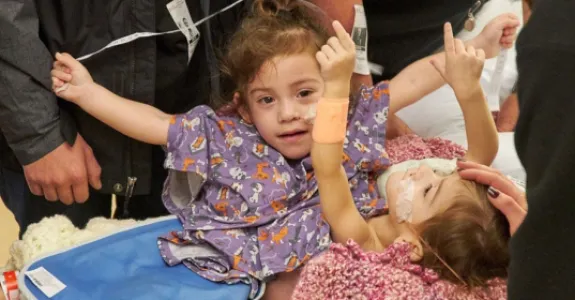
In 2002, Dr. Halamek founded the Center for Advanced Pediatric and Perinatal Education (CAPE), dedicated to fetal, neonatal, pediatric and obstetric simulation. Finding ways to use simulation-based learning methodologies to improve the performance of professionals and systems in healthcare and enhance patient safety is the primary focus of his work. Work currently being done at CAPE stands in service of the mission of the Lucile Salter Packard Children's Hospital at Stanford as well as the broader international pediatric and obstetric community. CAPE's achievements include but are not limited to the following:
- CAPE has established itself as an international leader in healthcare simulation. Trainees and visitors from 45 states in the U.S. and more than 45 foreign countries have come to CAPE. The work being done within its walls has been formally presented and/or conducted on five of the worlds seven continents.
- CAPEs Simulation Instructor Training Program is viewed as a national standard in pediatrics and obstetrics.
- Clinically relevant research conducted at CAPE using simulation as a methodology continues to influence the practice of pediatrics and obstetrics on local, regional and national levels. Examples include areas such as code cart design, resuscitation techniques and high-risk communication strategies.
- CAPE has a longstanding partnership with the American Academy of Pediatrics and its NeoSim program serves as the basis for the new simulation-based Neonatal Resuscitation Program (NRP), the national standard of care for newborns in the U.S. With the AAP, CAPE has also co-developed a number of novel training resources including a) the 2011 NRP Instructor DVD: An Interactive Tool for Facilitation of Simulation-based Learning, b) the 2011 NRP Instructor Manual, and c) a Key Behavioral Skills Wall Chart for display in delivery rooms across the U.S.
- CAPE has worked with industry to develop and field test new technologies for use in simulation-based learning including an interface to control bedside monitor data streams (Patient Monitor Driver, Advanced Medical Simulation, Inc.), a fetal monitor simulator (FetalSim, Advanced Medical Simulation, Inc.) and a number of neonatal, infant, pediatric and obstetric patient simulators (Laerdal Medical, Inc.). It has also actively collaborated in the development and implementation of a novel high definition audiovisual system tailored to meet the needs of simulation centers (Apple, Inc. and VMI, Inc.)
- CAPE is the originator of the Packard Circle of Safety, the process that defines how simulation is integrated into the daily activities of Lucile Packard Childrens Hospital to improve patient safety.
- CAPE has worked closely with the Center for Nursing Excellence at Packard to facilitate the dissemination of simulation throughout the hospital. The model of unit-based simulation task forces developed at CAPE is a national example for building a successful large-scale simulation program.
- Training programs developed at CAPE are attended by every nurse at Packard Childrens Hospital; every student in the Stanford University School of Medicine; every resident General Pediatrics, Gynecology and Obstetrics, Anesthesia, and Emergency Medicine; and every fellow in Neonatal-Perinatal Medicine, Maternal-Fetal Medicine and Pediatric Surgery.
- CAPE is the academic home to faculty and postdoctoral fellows in the Stanford departments of Pediatrics, Gynecology and Obstetrics, Emergency Medicine, and Anesthesia. It also serves as a host laboratory for projects in the BioDesign and BioSimulation programs at Stanford.
- CAPE has been a responsible steward of its founding gift and the endowment provided by an anonymous donor in our community and has successfully developed a diversified model of financial support while maintaining a solvent budget.

